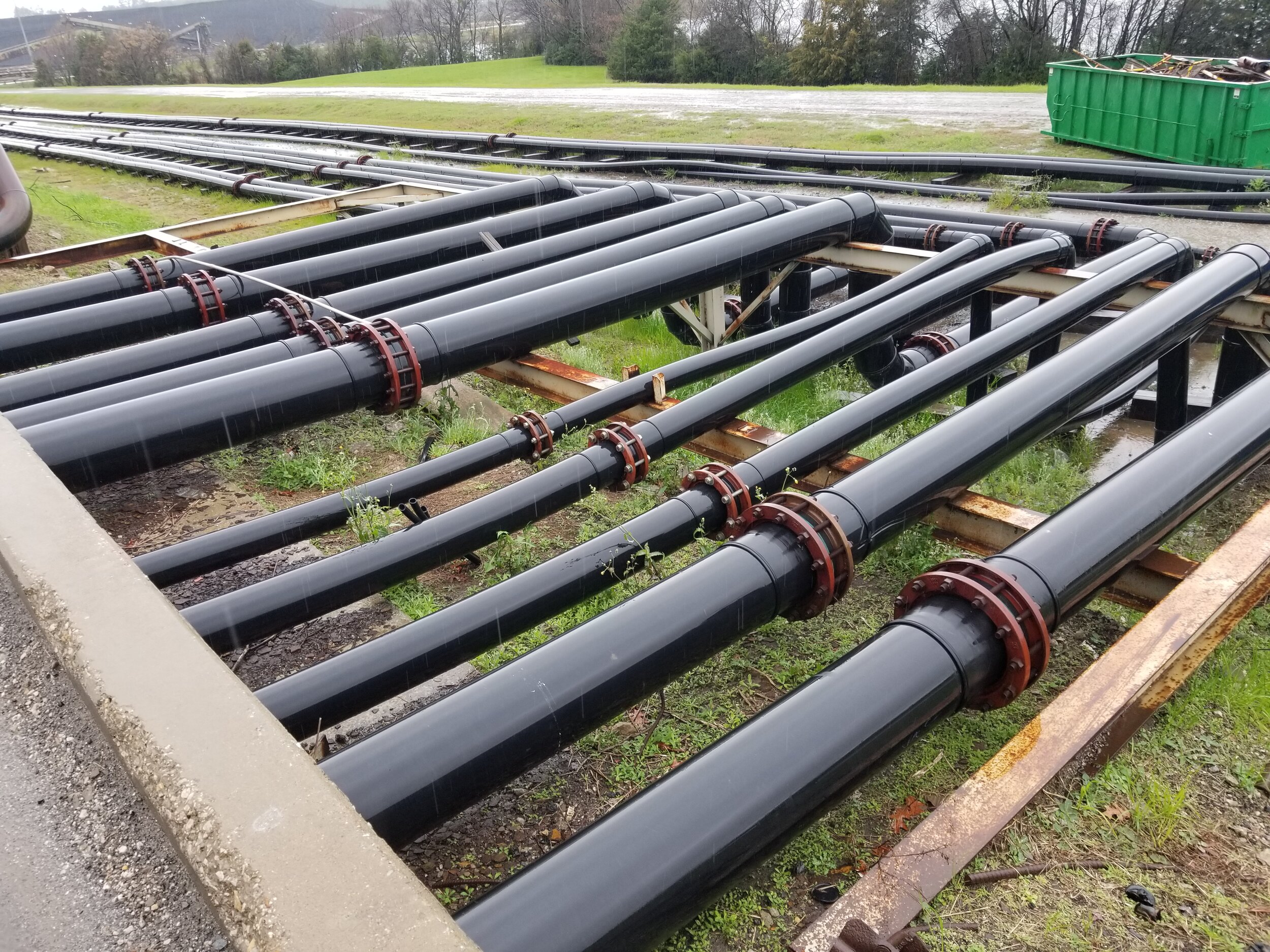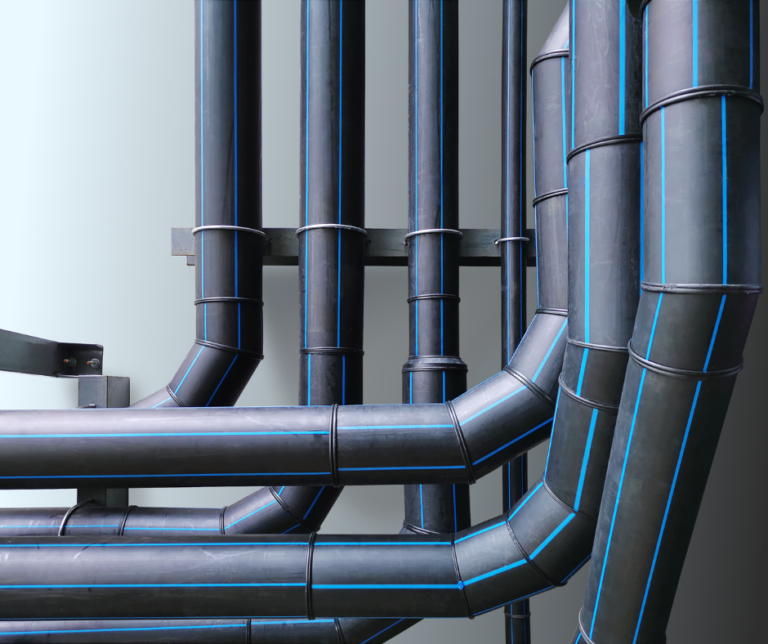A Comprehensive Overview to the Numerous Uses of HDPE Pipeline in Building And Construction and Sector
HDPE pipelines have actually become a critical part in modern building and construction and commercial applications. Their unique residential properties, such as resistance to deterioration and light-weight design, make them appropriate for a variety of uses. From water supply systems to agricultural watering, HDPE pipes provide options that boost efficiency and sustainability. Comprehending their varied applications is vital for experts looking to maximize facilities. What details advantages do these pipes offer each industry?
Supply Of Water and Circulation Systems
Water and distribution systems are crucial elements of urban infrastructure, often relying upon high-density polyethylene (HDPE) pipes for their longevity and efficiency. These systems transport potable water from therapy facilities to customers, ensuring ease of access and security. HDPE pipelines are preferred for their resistance to deterioration, chemicals, and extreme temperature levels, which boosts their long life and reduces maintenance prices. Furthermore, their lightweight nature enables much easier installment and transport, making them excellent for different urban and country applications.
The adaptability of HDPE pipes allows them to be installed in limited areas and around barriers, lessening the requirement for substantial excavation (hdpe pipe in stock Midland TX). Additionally, their smooth indoor surface area lowers friction losses, enhancing water flow rates. As cities remain to expand, the need for dependable supply of water systems raises, positioning HDPE pipes as a sustainable service for modern framework tasks. Their proven track document makes them a preferred selection among engineers and metropolitan coordinators alike
Wastewater Monitoring and Therapy
Effective wastewater management and treatment are essential for keeping public wellness and ecological quality. HDPE pipelines play an essential function in this procedure as a result of their toughness, resistance to corrosion, and ability to hold up against harsh chemicals. These pipes are commonly utilized in various applications, consisting of sewer system, stormwater drain, and wastewater therapy facilities. Their light-weight nature assists in less complicated installment and transportation, reducing labor costs and time.
Additionally, HDPE pipes have a smooth indoor surface area that decreases rubbing loss, promoting reliable flow prices. They are likewise less vulnerable to leaks and failings compared to typical materials, ensuring that impurities are included efficiently. In addition, their flexibility enables for flexibility in different soil conditions, making them suitable for varied ecological settings. As markets significantly prioritize lasting techniques, using HDPE pipelines in wastewater monitoring systems aligns with objectives for reducing environmental influence and enhancing resource healing.
Agricultural Watering Solutions
In agricultural settings, reliable watering solutions are essential for enhancing plant returns and managing water resources. HDPE (High-Density Polyethylene) pipelines play an essential role in contemporary watering systems as a result of their sturdiness, adaptability, and resistance to corrosion. Their capability to stand up to high stress makes them perfect for both surface and subsurface why not try here watering applications, ensuring uniform water distribution across areas.
Farmers can make use of HDPE pipelines in drip watering systems, which supply water straight to plant origins, reducing waste and advertising healthy and balanced development. Furthermore, these pipes are lightweight and simple to install, decreasing labor costs and installation time. Their long lifespan and low maintenance needs better boost their appeal in farming techniques.
HDPE pipelines are ecologically friendly, as they can be recycled and do not seep unsafe chemicals right into the soil. This makes them a sustainable selection for farmers intending to embrace green farming approaches while optimizing efficiency.
Industrial Applications and Processes
Versatility is a hallmark of HDPE pipelines, making them vital in various commercial applications and processes. These pipes are extensively used in chemical processing sectors due to their outstanding resistance to a variety of destructive materials. HDPE's lightweight nature, combined with high tensile stamina, allows for simple installation and lasting performance popular atmospheres.
In the oil and gas sector, HDPE pipes play an important duty in carrying hydrocarbons and gases, many thanks to their sturdiness and flexibility - hdpe pipe in stock Midland TX. In addition, they are used in mining operations for the transportation of slurry and various other materials, where typical piping systems may fail
HDPE pipes are increasingly used in producing facilities for water supply lines and wastewater management. Their ability to endure extreme temperature levels and stress makes them appropriate for a selection of commercial procedures. Generally, HDPE pipelines add considerably to performance and safety and security throughout varied industrial applications.
Stormwater Administration and Drain Solutions
Stormwater administration and drain systems are important more info here elements in metropolitan facilities, developed to manage excess rainfall and reduce flooding threats. High-density polyethylene (HDPE) pipelines are progressively used in these systems because of their resilience, flexibility, and resistance to corrosion. These pipelines effectively carry stormwater away from booming locations, decreasing surface area overflow and preventing waterlogging.
HDPE's light-weight nature promotes much easier installation, reducing labor prices and building time. Furthermore, its resistance to chemicals and environmental stress factors assurances longevity and integrity in different climates. In enhancement to standard drain applications, HDPE pipes are additionally utilized in innovative solutions such as green framework, which includes rain yards and permeable sidewalks.

Frequently Asked Questions
How Does HDPE Pipeline Contrast to PVC Pipe in Cost?
Generally, HDPE pipeline has a tendency to be much more costly than PVC pipe as a result of its boosted sturdiness and flexibility. Long-term cost factors to consider, such as maintenance and life expectancy, might prefer HDPE in particular applications.
What Is the Life Expectancy of HDPE Pipes Under Diverse Problems?
HDPE pipes commonly have a lifespan of 50 to 100 years, depending upon ecological problems, setup methods, and use. Variables such as temperature, dirt kind, and direct exposure to chemicals can considerably influence their durability.
Can HDPE Pipeline Be Recycled After Use?
Yes, HDPE pipelines can be reused after usage. The reusing procedure entails melting down the material, permitting it to be repurposed into new products, consequently advertising sustainability and lowering ecological influence related to plastic waste.
Exist Any Kind Of Details Installment Obstacles With HDPE Pipes?
Setup challenges with HDPE pipes consist of correct jointing methods, making certain appropriate trench problems, and handling thermal expansion. Additionally, proficient labor is needed to deal with specialized tools, which can make complex the setup process in numerous atmospheres.

What Accreditations Should I Try To Find When Investing In HDPE Pipings?
When acquiring HDPE pipelines, one must try to find accreditations such as ASTM, AASHTO, and ISO, which verify high quality blog here and compliance with industry criteria, assuring durability and efficiency in numerous applications. - Pipe Supplier American Plastics Midland